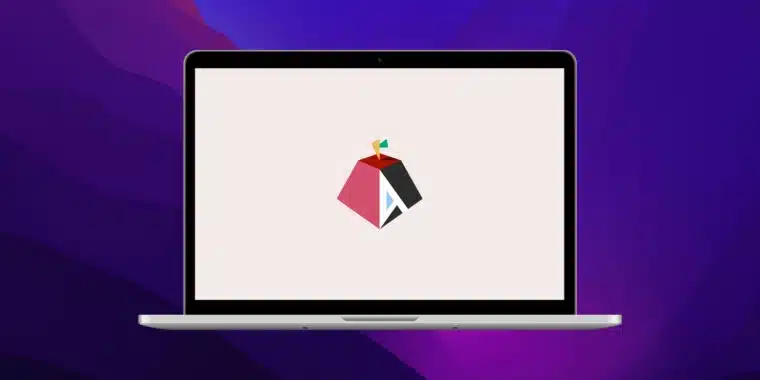If you experience any difficulty in accessing content on our website, please contact us at 1-866-333-8917 or email us at support@chicagovps.net and we will make every effort to assist you.

– Feb 14, 2024 10:00 pm UTC
For around three years now, the team of independent developers behind the Asahi Linux project has worked to support Linux on Apple Silicon Macs, despite Apple’s total lack of involvement. Over the years, the project has gone from a “highly unstable experiment” to a “surprisingly functional and usable desktop operating system.” Even Linus Torvalds has used it to run Linux on Apple’s hardware.
The team has been steadily improving its open source, standards-conformant GPU driver for the M1 and M2 since releasing them in December 2022, and today, the team crossed an important symbolic milestone: The Asahi driver’s support for the OpenGL and OpenGL ES graphics have officially passed what Apple offers in macOS. The team’s latest graphics driver fully conforms with OpenGL version 4.6 and OpenGL ES version 3.2, the most recent version of either API. Apple’s support in macOS tops out at OpenGL 4.1, announced in July 2010.
Developer Alyssa Rosenzweig wrote a detailed blog post that announced the new driver, which had to pass “over 100,000 tests” to be deemed officially conformant. The team achieved this milestone despite the fact that Apple’s GPUs don’t support some features that would have made implementing these APIs more straightforward.
Regrettably, the M1 doesn’t map well to any graphics standard newer than OpenGL ES 3.1,” writes Rosenzweig. “While Vulkan makes some of these features optional, the missing features are required to layer DirectX and OpenGL on top. No existing solution on M1 gets past the OpenGL 4.1 feature set… Without hardware support, new features need new tricks. Geometry shaders, tessellation, and transform feedback become compute shaders. Cull distance becomes a transformed interpolated value. Clip control becomes a vertex shader epilogue. The list goes on.”
Now that the Asahi GPU driver supports the latest OpenGL and OpenGL ES standards—released in 2017 and 2015, respectively—the work turns to supporting the low-overhead Vulkan API on Apple’s hardware. Vulkan support in macOS is limited to translation layers like MoltenVK, which translates Vulkan API calls to Metal ones that the hardware and OS can understand.
Apple’s OpenGL support has been stuck at the 4.1 level since macOS 10.9 Mavericks was released in 2013. Since then, the company has shifted its focus to its proprietary Metal graphics API, which, like DirectX 12 and Vulkan, is a “low-overhead” API meant to reduce the performance overhead sometimes associated with older APIs like OpenGL. But despite declaring OpenGL officially deprecated in 2018, Apple has left its existing OpenGL implementation alone since then, never updating it but also maintaining support even as it has transitioned from Intel’s processors to its own CPUs and GPUs.
Rosenzweig’s blog post didn’t give any specific updates on Vulkan except to say that the team was “well on the road” to supporting it. In addition to supporting native Linux apps, supporting more graphics APIs in Asahi will allow the operating system to take better advantage of software like Valve’s Proton, which already has a few games written for x86-based Windows PCs running on Arm-based Apple hardware.
Fedora Asahi Remix, despite some non-functioning features, offers unexpected compatibility with a wide array of hardware used in most M1 and M2 Macs. Some of the compatible features include the webcam, speakers, Wi-Fi and Bluetooth, as well as graphics acceleration. Conversely, functionalities such as Thunderbolt, USB-C based display running, the system’s inherent microphone, and the Touch ID fingerprint sensors remain inactive. The latest update blog post from Asahi, released in mid-January, underscored HDMI support, compatibility with DRM-secured websites through the proprietary Widevine package of Google, and Touchbar compatibility for a few Apple Silicon Macs that utilize one, amongst others.
Regarding the latest M3 Macs, Hector Martin, a developer at Asahi, estimated in October 2023 that basic chip support will require a minimum of “six months”. This time will be used, among other things, to develop the drivers for the M3 GPU; the fact that the team primarily uses Mac mini models for development, and the non-existence of an M3 Mac mini complicates the situation.
ChicagoVPS is your gateway to unparalleled hosting solutions. Our state-of-the-art datacenters and powerful network ensures lightning-fast speeds and uninterrupted connectivity for your websites and applications. Whether you’re a startup looking for scalable resources or an enterprise in need of enterprise-grade hosting, our range of plans and customizable solutions guarantee a perfect fit. Trust in ChicagoVPS to deliver excellence, combining unmatched reliability and top-tier support.
For Inquiries or to receive a personalized quote, please reach out to us through our contact form here or email us at sales@chicagovps.net.
